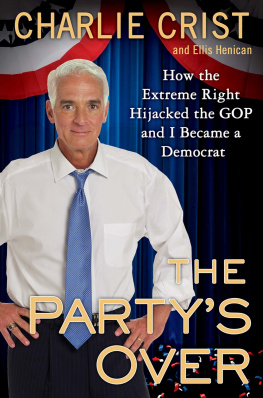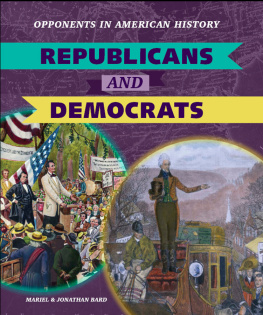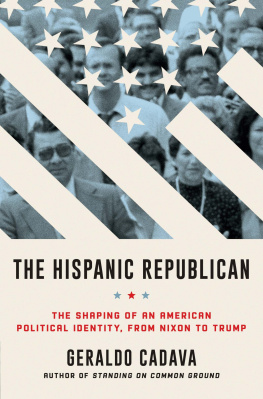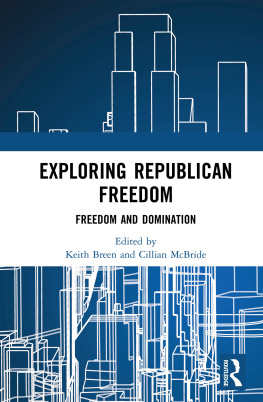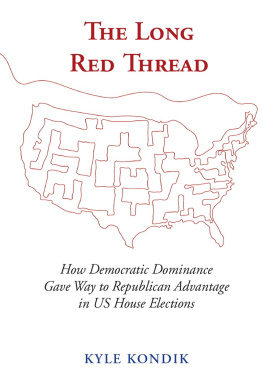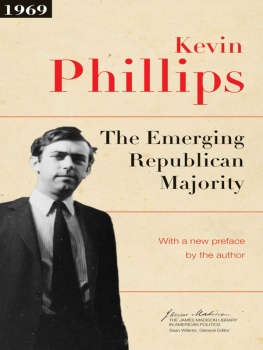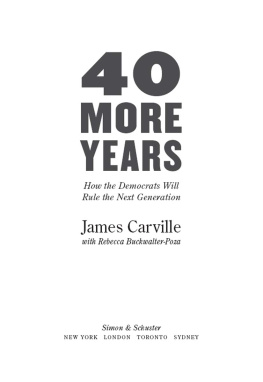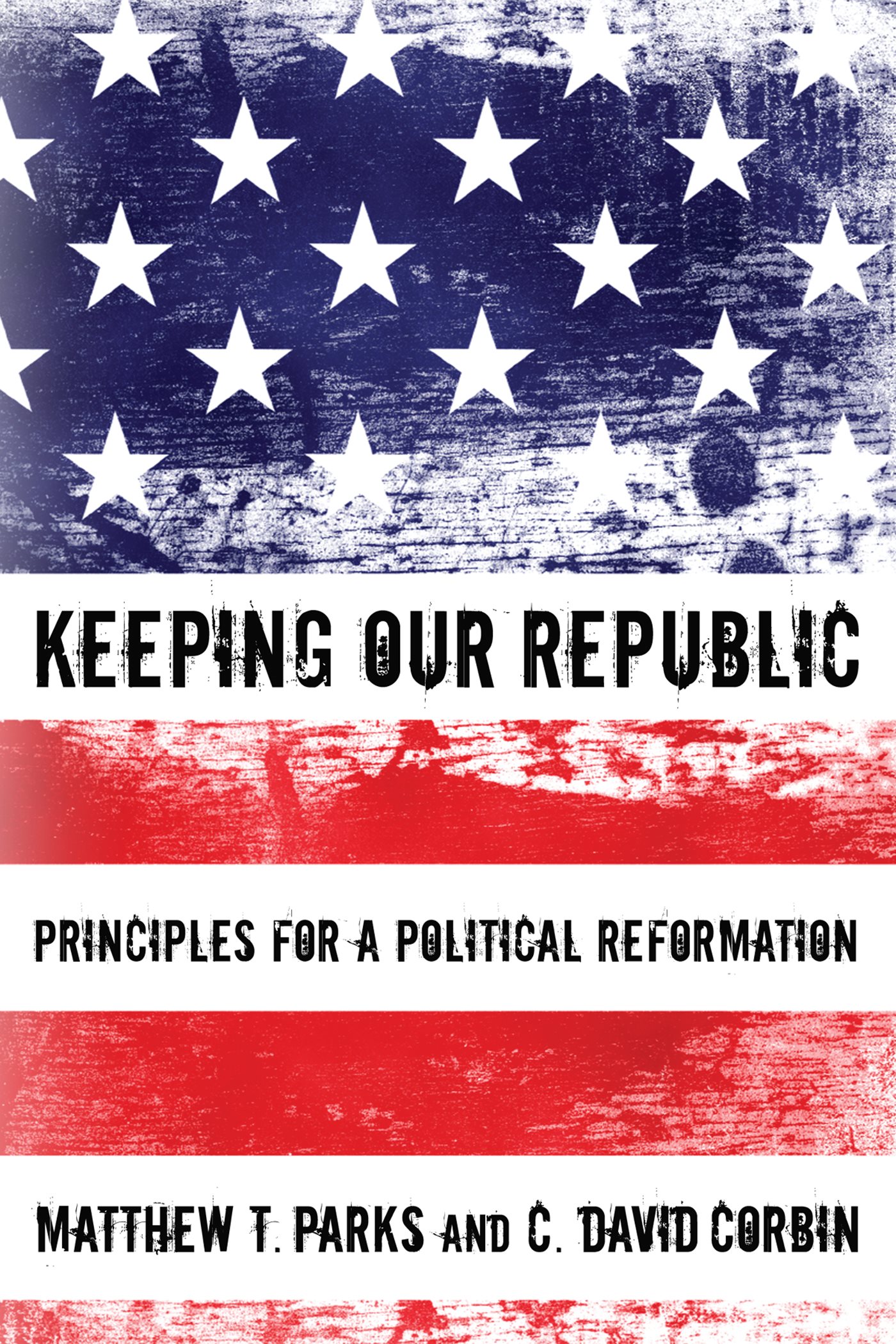W e share a common intellectual debt to our great teacher, Angelo Codevilla, whose stamp can be found on all that is good in this short book. From our days as graduate students at Boston University to the development of this work, his wisdom and critical eye have challenged and shaped us. Our families have graciously encouraged and supported us during the progress of this project and have our deepest gratitude, love, and thanks. We are also very grateful for the careful work of our excellent copyeditor, Kristin Magee, and the team at Wipf and Stock that has shepherded us through this process.
Introduction
If we could first know where we are, and whither we are tending, we could better judge what to do, and how to do it.
Abraham Lincoln, A House Divided, June 16, 1858
T he re is something wrong with our politics that elections cannot solve. In recent years, we have had a Republican Congress with a Democratic president, a Republican Congress with a Republican president, a Democratic Congress with a Republican president and a Democratic Congress with a Democratic president. The New Democrat of 1992 produced a Republican Revolution in 1994. We cleansed ourselves of Clinton Administration corruption in 2000 only to have to punish Republican corruption in 2006. Hope and Change triumphed in 2008, while Change That Matters flopped in 2010. For nearly twenty years, the American people have tried to mind their own business at home while carrying on a seemingly futile search for the right combination of Rs and Ds in Washington. That search will not end until we address the root of our political disorder: the progressive abandonment of our republican principles and heritage. Only a political reformation, calling us back to the wisdom of our fathers and the founding documents of our nation, can truly free us from the deeply-entrenched, bipartisan ruling class that is bankrupting and degrading us. Only a political reformation can secure the Blessings of Liberty to ourselves and our Posterity....
Where We Are and Whither We Are Tending
President Obamas administration has dramatically accelerated trends that have generally defined the politics of the last two decades: spending and deficits beyond all reasonable levels, expanded government control of our lives and livelihoods, and a growing disconnect between our privileged ruling class and the rest of America. The result has been an increasingly-disillusioned public and a consensus among informed commentators that we the people are too simple to deal with our complex problems, that the United States is in irreversible decline, and that only a rapid infusion of Chinese-style authoritarianism can stave off total collapse.
We believe that American decline is neither inevitable nor impossible. The rugged republican path by which thirteen New World colonies became historys freest, most prosperous, and most powerful nation remains open, though years of neglect may have allowed the wild undergrowth to the right and to the left to obscure the way. Clearing this path for use in our own generation must begin with a restatement of the key principles that have shaped it and a demonstration of their continued power to answer the needs of our time.
If reading or writing a book seems too slow a route to reformation, consider: it was Common Sense that moved the American colonists to action and The Federalist Papers that defined the core principles of our regime for generations. Many years later, the Reagan Revolution began with Barry Goldwaters The Conscience of a Conservative . Our own little contribution to the restoration of our republic, pygmies though we are among these giants, is grounded in the belief that we cannot break our cycle of electoral disappointments until we understand our political heritage and see clearly both where we are and whither we are tending.
Anyone who looks into what ails us understands that the people who are making things worse believe that they are better than we are and know more than we knowand, therefore, that they are our natural rulers. To speak and act usefully, we have to be clear about why and how they are wrong. We have to be clear about what is right and why it is so. Americas Founders also had to deal with rulers who assumed that they had a natural right to command. Our Founders were able to free themselves from their presumed betters because they tempered their anger with understanding and married theory to practice.
These early American statesmen knew what they wanted to create: as John Adams defined it (quoting Harrington), an empire of laws, and not of men. In the best republic, the laws are made, executed, and enforced impartially, transparently, and exactly. Regardless of party or ideological affiliation, one could not claim that American government operates in such a manner today. This is not because we explicitly reject these ideals: every new politician enters office promising impartiality, transparency, and fair dealing. And yet far too often he becomes just one more leader quickly and quietly convinced that it is more convenient and desirable to use his office to reward friends and aggrandize himself.
Republican and Post-Republican Citizens
Still, if our leaders have too often let us down, we must admit that central to our trouble is the fact that we have lost touch with what it means to be a citizen of a republicto expect and demand nothing less and nothing more than the impartial, transparent, and exact administration of the law. Such a view of citizenship begins with an understanding of two fundamental moral facts about human beings: that we are equal in dignity with one another and morally responsible for the justice of our actions. Neither of these principles predetermines the right level of taxation or spending, the best measures for health care reform, or the particular policy to be adopted in any other area. They go deeperto the very foundation of our political order. They demand of us: Have I proposed a rule for others that I could live with myself? Can I give a reason for my policy more meaningful than: because I (or we) say so?
We are not surprised to find, in contemporary America or anywhere else, that there are profound and seemingly intractable differences in how we answer the most basic political and philosophical questions. A republican citizen, however, recognizes that, as he pursues his own best understanding of the good life, there is no reason why either he or his neighbor, whatever their differences, should be denied the protection of his person and propertyand no justification for making the terms of such protection more agreeable to those with power than those without it. Nevertheless, interest groups today cultivate division, appealing to our lowest desires for easy gain, and willingly subvert (and convince us to subvert) legitimate republican government for the sake of a merely private good. Of course, once the scrum begins, few can afford to be bystandersor avoid the bruises to their dignity and mud stains on their character that inevitably follow. The result is something very different from the citizen of a republica thoroughly debased confidence man with a gift for rationalizing plunder.


